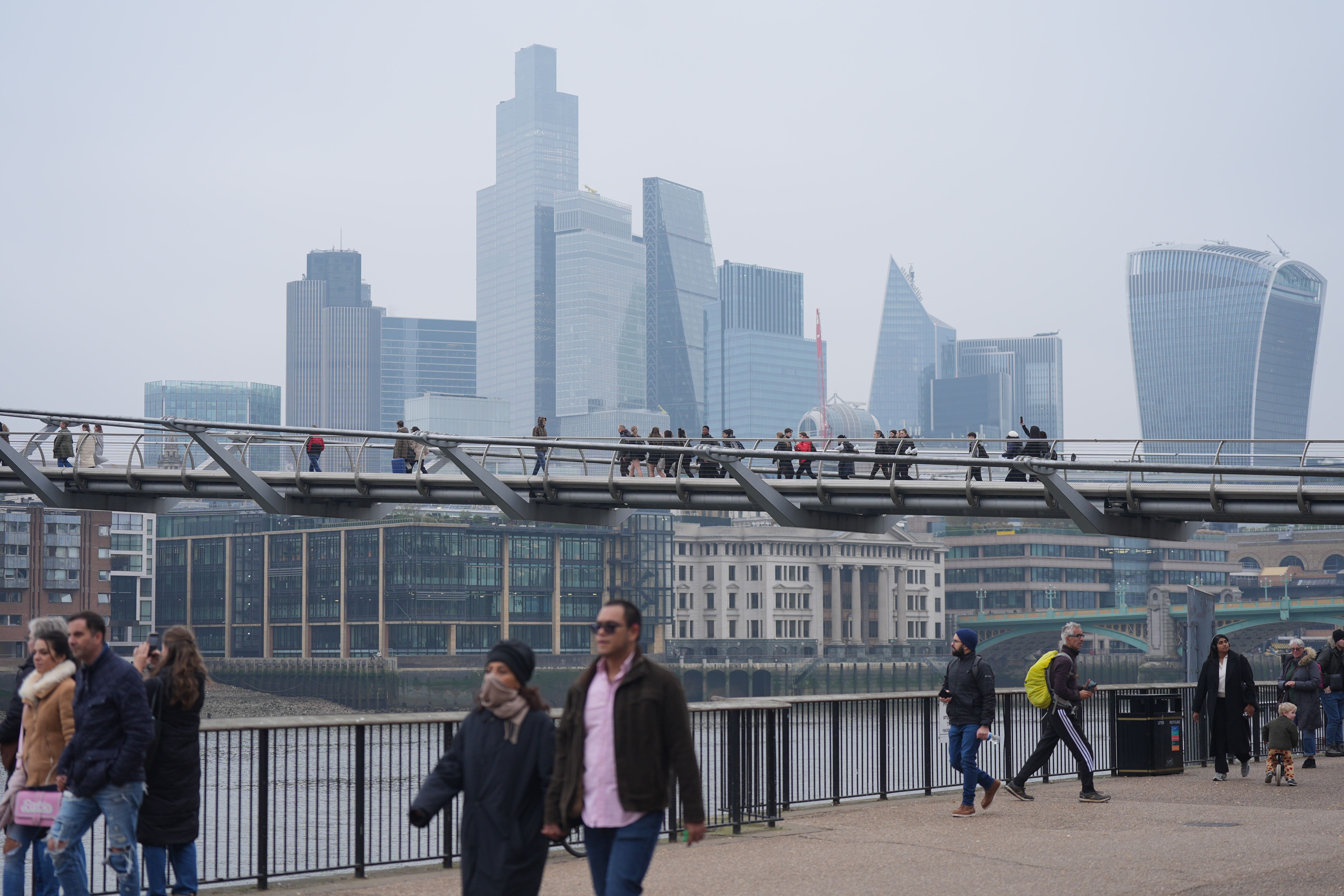UK services sector ‘close to stalling’ in November after Budget tax rises
A survey found forthcoming rises in employers’ national insurance contributions weighed on firms’ appetite to hire new staff.

Your support helps us to tell the story
From reproductive rights to climate change to Big Tech, The Independent is on the ground when the story is developing. Whether it's investigating the financials of Elon Musk's pro-Trump PAC or producing our latest documentary, 'The A Word', which shines a light on the American women fighting for reproductive rights, we know how important it is to parse out the facts from the messaging.
At such a critical moment in US history, we need reporters on the ground. Your donation allows us to keep sending journalists to speak to both sides of the story.
The Independent is trusted by Americans across the entire political spectrum. And unlike many other quality news outlets, we choose not to lock Americans out of our reporting and analysis with paywalls. We believe quality journalism should be available to everyone, paid for by those who can afford it.
Your support makes all the difference.Growth in the UK’s services sector slowed to its lowest rate in more than a year in November as firms digested a raft of business tax rises in the autumn Budget.
The closely watched S&P Global UK services PMI survey scored 50.8 in November, slowing from 52.0 in October.
It was slightly above the 50.0 reading forecast by a consensus of economists.
Any reading above 50 means a sector is in growth, while a score below this means it is shrinking.
Worries about the impact of policies announced in the autumn Budget, in particular those pushing up employment costs, were widely reported as leading to a gloomier assessment of business investment prospects and the broader UK economic outlook
In October, Chancellor Rachel Reeves announced a sharp rise in employer national insurance contributions (NICs), which led to criticism from companies.
Ms Reeves acknowledged in late November that she had received a lot of “feedback” over the Budget, which included £40 billion of tax increases, but insisted no-one had presented a “credible alternative” to her plan.
Businesses expanded slower than usual, while forthcoming rises in employers’ NICs weighed on firms’ appetite to hire new staff, respondents said.
The number of people employed by the sector also dipped for a second consecutive month, with firms citing higher payroll costs.
Input prices, which help indicate inflation in the sector, also rose as a result of higher staffing costs.
Tim Moore, economics director at S&P Global Market Intelligence, said: “UK service providers indicated that business activity was close to stalling in November, with growth easing to its slowest for over a year.
“Weaker sales pipelines, cutbacks to new projects and more caution among clients were all cited as having an adverse impact on service sector output.”
He added: “Worries about the impact of policies announced in the autumn Budget, in particular those pushing up employment costs, were widely reported as leading to a gloomier assessment of business investment prospects and the broader UK economic outlook.”
The services sector makes up the majority of the UK economy, and is closely watched by the Bank of England as a gauge of underlying inflation.
The Bank’s policymakers are widely expected to keep interest rates unchanged at 4.75% next month, following two cuts earlier this year.